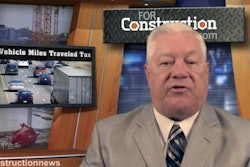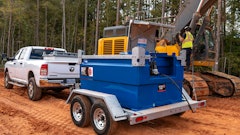A series of changes California officials made to their off-road diesel emissions rule, after the Associated General Contractors of America discovered significant errors in the measure, will save construction employers as much as $9 billion. Association officials outlined the changes and their potential impacts during a federal hearing today on whether California can start enforcing the revised measure in 2014.
“Once we pointed out their initial errors, California officials made a good faith effort to modify their proposal to protect both the environment and the construction industry,” said Mike Kennedy, the association’s general counsel. “While we are not prepared to support California’s request [for federal approval], we do believe the state’s request can be fairly submitted.”
Kennedy said that when the California Air Resources Board first proposed its off-road diesel emissions rule in 2007, the construction industry estimated the measure would cost employers $13 billion. However, the Associated General Contractors of America identified that the original proposal overestimated the emissions from off-road diesel construction equipment by at least 340 percent.
After the association disclosed the significant flaws in the original off-road rule, state officials made a number of major modifications to the measure. The Air Board agreed to delay the rule by almost four years, dramatically reduce the amount of construction equipment they would require firms to replace each year, agreed to expand “early action” credits that contractors could earn and expanded exemptions for “low-use” vehicles.
Kennedy noted that as a result of the changes, California officials estimate the revised rule will cost 70 percent less than the original version. If the state’s estimate is accurate then California’s contractors can expect to save as much as $9 billion, he added. He cautioned that even with the significant changes, the measure still comes at a bad time for hard-hit construction employers. He cited evidence, for example, that contractor defaults will be higher in 2012 than in any of the previous three years.
Kennedy outlined the changes to the measure during testimony to the U.S. Environmental Protection Agency. The agency is considering California’s request for permission to begin enforcing the emissions standards starting January 1, 2014.



















